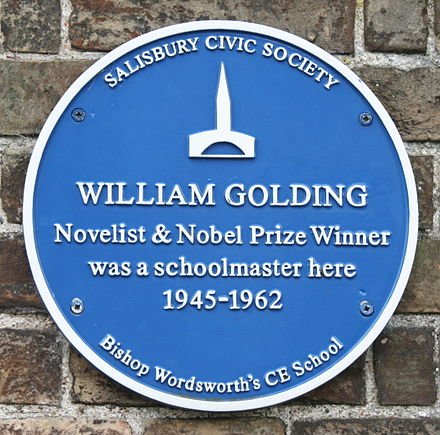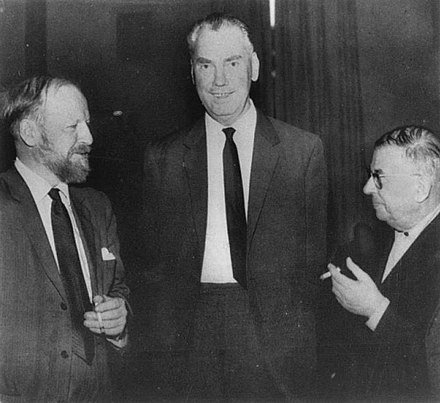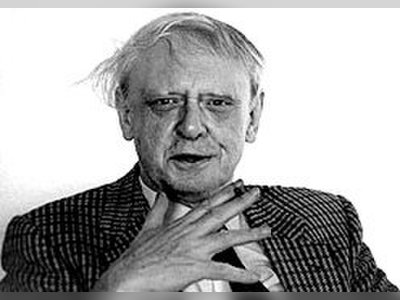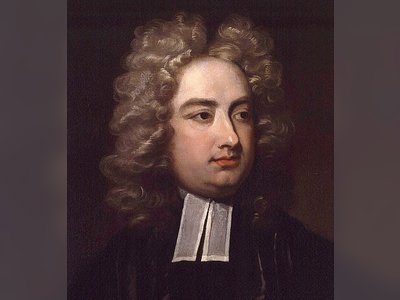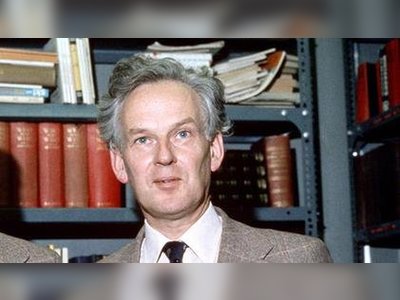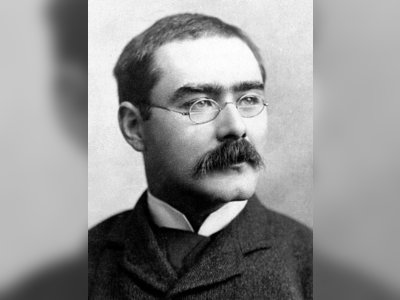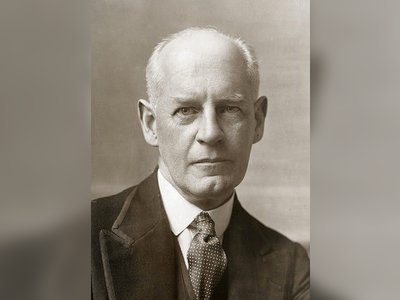British Heritage
Remember, Cherish, Learn.
beta
William Golding - Nobel Novelist
A Pivotal Figure in British Literary Heritage.
Introduction
Sir William Gerald Golding (1911–1993) was a significant pillar in the architectural edifice of British literature. A novelist, playwright, and poet, his work contributed significantly to the post-World War II era's literary richness, leaving an indelible mark on the country's heritage. Best known for his debut novel, Lord of the Flies (1954), Golding's explorations of human nature's depths brought a level of depth and insight to his literary contributions that marked him out as an exceptional talent. Golding’s numerous accolades include the Nobel Prize in Literature, knighthood, fellowship of the Royal Society of Literature, and the prestigious Booker Prize for Rites of Passage, further testament to his profound influence on British literature.
Life and Education
Golding was born in his maternal grandmother's house, 47 Mount Wise, Newquay, Cornwall. The Cornish language name for this beloved abode, Karenza, translates to "love," reflecting the profound affection he held for his birthplace. Raised in Marlborough, Wiltshire, Golding's intellectual curiosity was nurtured by his parents, science master Alec Golding, and suffrage campaigner Mildred (Curnoe) Golding.
Golding's education at Marlborough Grammar School and later Brasenose College, Oxford, served as the fertile ground for his future endeavors. Initially drawn to natural sciences, Golding's passion for literature led him to switch to English during his final two years. His aptitude for poetry was recognized early on when his friend, the anthroposophist Adam Bittleston, helped publish a collection of his poems by Macmillan & Co in 1934, shortly after his graduation.
Teaching Career and World War II
Golding embarked on a teaching career in 1935 at Michael Hall School, a Steiner-Waldorf institution. His tenure included posts at Maidstone Grammar School and Bishop Wordsworth's School, Salisbury. However, the advent of World War II disrupted his teaching career when he joined the Royal Navy in 1940. He participated in critical wartime events, including the pursuit of the German battleship Bismarck, the invasion of Normandy on D-Day, and the action at Walcheren.
Personal Life and 'Crisis'
In the midst of global turmoil, Golding found stability in his personal life when he married Ann Brookfield, an analytical chemist, in 1939. They had two children, David and Judith. However, Golding also battled his demons, primarily in the form of alcohol addiction. This struggle significantly impacted his life and work and led to what he described as his "crisis". His journey to recovery included exploration of Carl Jung's works and the act of keeping a personal journal for over two decades, containing retrospective thoughts about his novels and life.
Literary Career
Golding's literary journey commenced during his teaching years. His debut novel, Lord of the Flies, initially titled Strangers from Within, faced multiple rejections before being published in 1954. The book's success heralded the dawn of a prolific career marked by thought-provoking themes that delved into humanity's dark underbelly.
His other major works include The Inheritors (1955), Pincher Martin (1956), Free Fall (1959), and The Spire (1964). Each novel was an exploration of different facets of human nature, freedom of choice, and the clash of civilization and primitiveness.
The 1980 novel, Rites of Passage, the first in his sea trilogy, To the Ends of the Earth, further cemented his reputation. It won him the Booker Prize and was followed by two sequels, Close Quarters (1987) and Fire Down Below (1989).
Accolades and Legacy
Golding’s literary excellence was recognized when he was awarded the Nobel Prize in Literature in 1983. He was knighted five years later in recognition of his contribution to literature. The Times, in 2008, ranked him third in its list of "The 50 greatest British writers since 1945".
Golding's profound influence extended beyond literature, evidenced by his suggestion to his friend and fellow villager, James Lovelock, to name the hypothesis that the living matter of the planet Earth functions like a single organism, Gaia, after the Greek mythology Earth personification.
Golding passed away in 1993, leaving behind an unfinished novel, The Double Tongue, published posthumously in 1995.
His literary legacy continues to inspire, captivate, and challenge readers worldwide. Golding's ability to probe the depths of human nature and the thin veneer of civilization has cemented his status as one of the most significant British writers of the 20th century. His work has become an integral part of British literary heritage, and his influence continues to resonate in contemporary literature. Indeed, Golding's profound contribution to British literature will continue to inspire and engage readers for generations to come.
- William Goldingen.wikipedia.org


